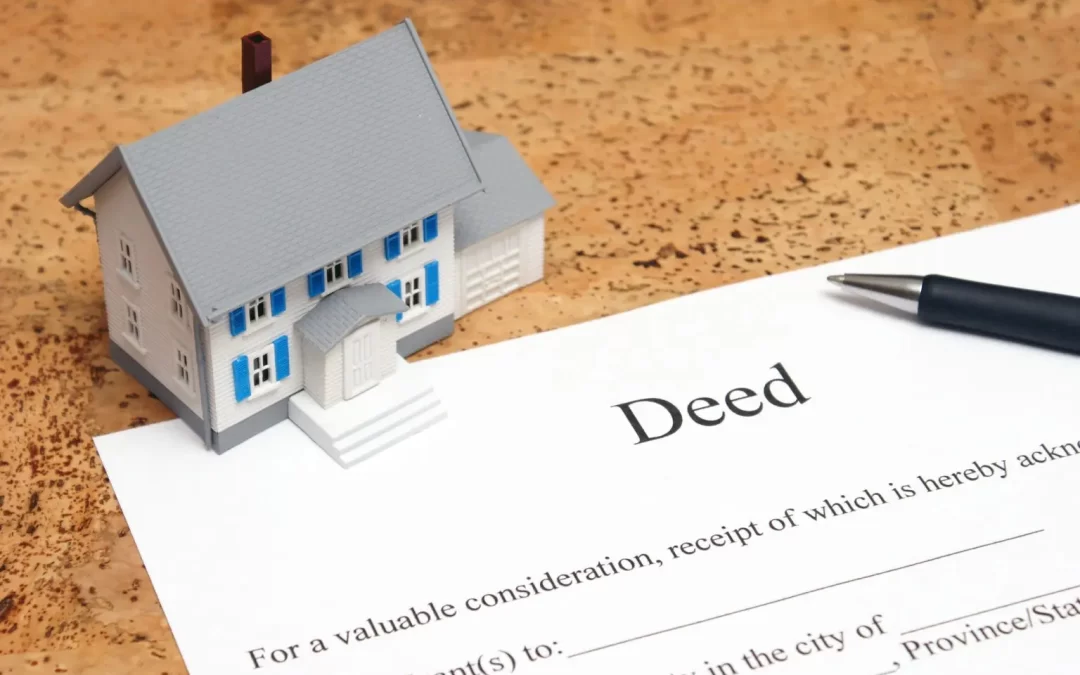In the intricate world of real estate transactions, understanding the nuances of a real estate deed is crucial. A real estate deed is a legal document that serves as the formal evidence of property ownership transfer from one party to another. The following info should demystify the concept of real estate deeds and shed light on the important details associated with this essential document.
What is a Real Estate Deed?
At its core, a real estate deed is a legal document that conveys the ownership interest of a property from one party, known as the grantor, to another, known as the grantee. This document is fundamental in establishing legal rights and obligations regarding real property. The deed provides a comprehensive record of the property transfer, outlining the terms and conditions agreed upon by both parties. The deed must also be acknowledged by a notary public or other authorized official.
Key Types of Deeds:
There are several types of deeds, each serving distinct purposes and carrying different levels of warranties. The most common types include:
-
General Warranty Deed:
- Provides the highest level of protection for the grantee.
- Guarantees that the property is free from any encumbrances, except those explicitly stated in the deed.
-
Special Warranty Deed:
- Limits the grantor’s warranties to the time during which they owned the property.
- Offers protection against defects arising only during the grantor’s ownership period.
-
Quitclaim Deed:
- Offers the least amount of protection for the grantee.
- Conveys the grantor’s interest in the property without any warranties regarding title issues.
-
Grant Deed:
- Falls between a general warranty deed and a quitclaim deed in terms of protection.
- Guarantees that the property has not been sold to another party, and there are no undisclosed encumbrances.
Important Details in a Real Estate Deed:
-
Names of Parties:
- Clearly identifies the grantor (seller) and grantee (buyer) involved in the transaction.
-
Legal Description of the Property:
- Provides a detailed and accurate description of the property, ensuring there is no ambiguity regarding its boundaries and location.
-
Consideration:
- Specifies the amount of consideration (monetary or otherwise) exchanged for the property.
-
Signature and Acknowledgment:
- Requires the grantor’s signature, and the acknowledgment before a notary public, or other authorized officer, to ensure the deed’s validity.
-
Delivery and Acceptance:
- Implies that the deed must be delivered to the grantee and accepted to complete the transfer of ownership.
-
Covenants and Warranties:
- Outlines any promises or guarantees made by the grantor regarding the property’s condition and ownership status.
In the intricate tapestry of real estate transactions, the real estate deed stands as a testament to property ownership transfer. Understanding the key types of deeds and the crucial details they entail is paramount for anyone engaged in buying or selling real estate. Whether it’s the comprehensive protection of a general warranty deed or the simplicity of a quitclaim deed, the nuances of each type play a pivotal role in shaping the legal landscape of real property ownership. As you embark on your real estate journey, a thorough comprehension of real estate deeds will empower you to navigate the complexities with confidence and clarity.
Want to schedule a call with us?
Complete the form below to request a callback.
